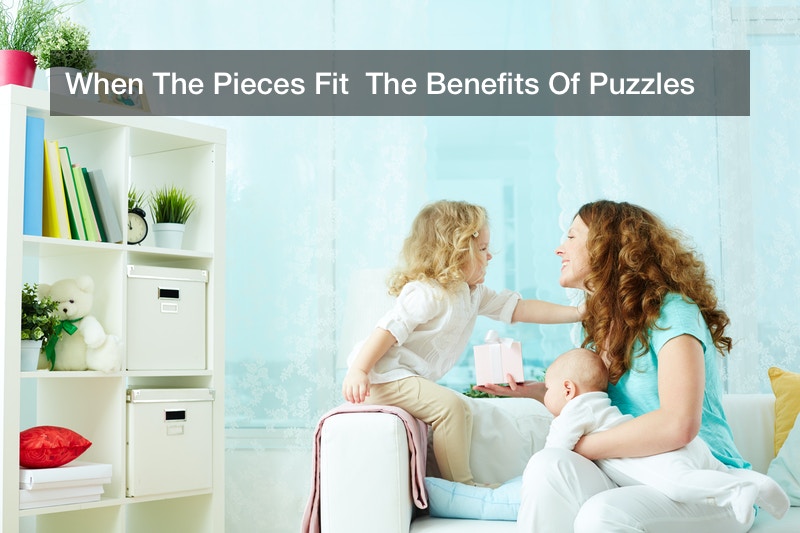When The Pieces Fit The Benefits Of Puzzles

In the United States, many individuals have various past times. Some enjoy participating in boardgames. Other really like charades for family games or family game night. Lastly, some individuals choose an array of puzzles; easy puzzles, hard puzzles, 500 piece puzzles, 750 piece jigsaw puzzles, and even 2000 piece puzzles. The choices are endless! It is worth noting that completing puzzles as family games or friend games, or even alone is beneficial. Yes, that’s correct, doing puzzles has many benefits! If you enjoy doing puzzles as family games, or alone, here are some of the benefits of completing puzzles. What happens when the pieces fit?
Jigsaw Puzzles: The Many Benefits
To begin, puzzles have been around for a very long time, before family games even began. In fact, the first puzzle known to human beings was created in 250BC. That is certainly a long time ago! Since then, puzzles have evolved significantly. There are so many puzzles you can choose from, and that doesn’t just include how many pieces comes with the puzzle. You can choose different types of picture puzzles to do, from nature, to sports, to even pictures of your own family. The possibilities are truly incredible. If you’re doing puzzles, you’ll notice that there are many benefits as you participate in family games!
Your Mood: The first benefit to completing a puzzle is the fact that it can increase your feel good mood. To be more specific, this is because dopamine is released when people do puzzles. Additionally, dopamine makes us happy or places us in a good mood. Therefore, if you want your mood to change to a positive one, this can be achieved through doing a puzzle.
Memory: You probably assume that family games are all for fun, especially when you’re doing a puzzle. However, puzzles are more than fun. The second benefit of doing puzzles is that it can assist you with your memory, and it may even improve it. More specifically, puzzles can help with your short term memory as compared to long term memory. This is because when you do a puzzle, you have to memorize or process certain shapes, pictures, and colors. In addition, you have to envision what the picture is supposed to look like when it is completed. Thus, this entire process of doing a puzzle involves your memory. If you want to improve your memory, you can do so with puzzles!
Alzheimer’s And Dementia: This third benefit slightly goes along with memory. Doing a puzzle is not only for fun, your mood, or family games. When you do a puzzle you have the opportunity to help with memory diseases, such as Alzheimer’s and Dementia. This diseases really interfere and change the way our brains work and how our brains store memory. For most patients diagnosed with Alzheimer’s and Dementia, they begin to forget things in both their short term memory and their long term memory. When you complete puzzles, you have the opportunity to slow down the symptoms of Alzheimer’s and Dementia. This is an extremely important benefit of doing puzzles.
Stress: Many people participate in family games or family game night to have fun and forget their worries of the days or weeks. With puzzles, not only do you have fun and it’s a distraction from the worries of life, you decrease your stress. Yes, puzzles decrease your stress! This is due to the process of completing a puzzle. When you do a puzzle, your brain enters a meditative state. Therefore, you’re able to relax and decrease the stress you’re experiencing. If you want to decrease your stress, do a puzzle!
Concentration: Another benefit of doing puzzles as part of family games, is it can increase your concentration. This benefit also has another layer to it. First, concentration is key to doing a puzzle. You must really focus to get the correct pieces to fit. Once your concentration gets better, you can be more productive within your life. This means that you can be more productive at work, at school, and while at home!
Those are just some of the benefits of doing puzzles! Now, it’s time to put all of the pieces together!
